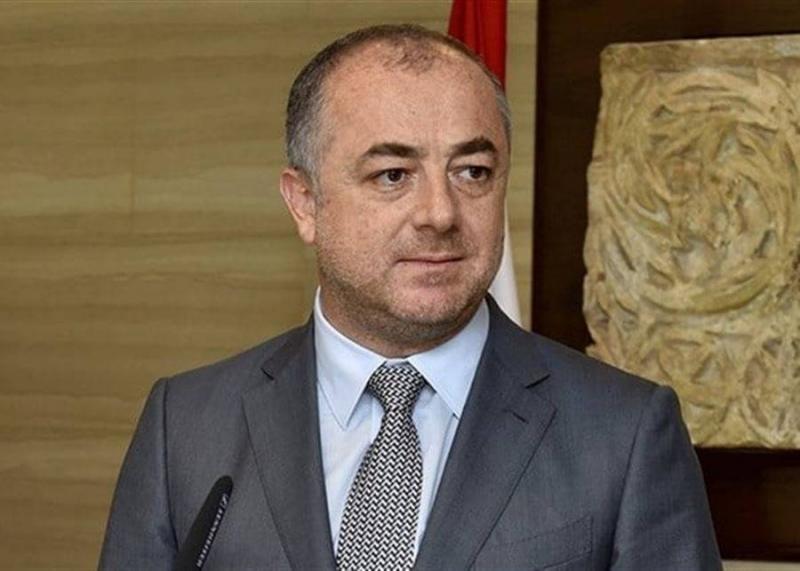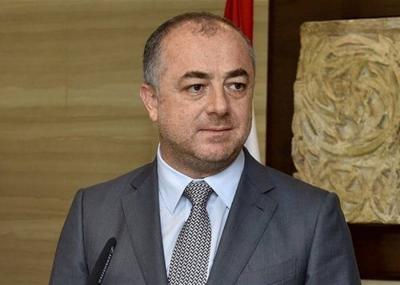The Deputy Speaker of the Parliament, Elias Bou Saab, speaks with absolute positivity about the recent initiative launched by Parliament Speaker Nabih Berri to mark the anniversary of Imam Musa Sadr's disappearance. However, Bou Saab highlights some reservations regarding this positivity, particularly concerning the positions of the blocs or parties opposed to dialogue. In an exclusive interview with "Wardna," Bou Saab states that Speaker Berri proposed a week-long dialogue, followed by open electoral sessions, which was a demand from all the parties reluctant to engage in dialogue for its own sake. He notes that Berri's initiative emphasizes that the dialogue is meant to agree on a name, and if no consensus is reached, open sessions will follow.
Bou Saab pauses briefly to point out what he views as a key factor in resolving or exacerbating the crisis, stressing, "Those who do not want this dialogue are essentially calling for complete paralysis of the country, and we warn that the consequences of such a gamble will be unpredictable." He continues in the same vein, stating that the quickest solution is to accept this initiative unless the opposing side is completely against sitting at the table, in which case they should present us with an alternative solution.
Regarding the initiative itself, Bou Saab adds his political perspective, saying, "After nearly a year of vacancy, what harm is there in going to a dialogue for one week?" He further states, "Those who do not want this dialogue are afraid of the open sessions." In this context, the Deputy Speaker warns that we are facing "the last opportunity to elect a president in the upcoming September, and they should tell us how it is possible to elect a president without dialogue among ourselves?" Therefore, "Either we find a solution and agreement and organize our differences within the council, or this parliament will not be able to elect a president, leading to the necessity of early parliamentary elections."
On the proposition of early elections, he confirms that no political party has yet adopted this idea, asking, "But what should we do? Wait three years until the parliamentary and then presidential elections?"
**Aid Conditional on Reforms**
Regarding the recent Arab and international movements towards Lebanon and attempts to extricate it from its crisis, Deputy Elias Bou Saab states in his conversation with our website that no country, especially the Gulf Cooperation Council states, will offer assistance to Lebanon before the election of a president, the formation of a government, and the issuance of clear stances from both regarding the required reforms and the fight against corruption, as well as collaboration with the International Monetary Fund.
**Hochstein.. and Assessing Intentions**
Since the start of the maritime border demarcation process, Elias Bou Saab has been closely following the details of this file, including the commencement of gas exploration and the establishment of the southern land borders along the Blue Line. Regarding U.S. Senior Energy Advisor Amos Hochstein's recent visit to Beirut, Bou Saab clarifies that it was exploratory, particularly concerning the land points along the southern borders. He states, "If the intentions are sincere from both sides, Hochstein is ready to conduct a round of negotiations, and he will meet with the Israelis to assess their seriousness." He emphasizes that the issue at hand is the establishment of border points defined since 1923. On oil exploration, he notes that it has begun and there are intentions to start exploration in other blocks near number 9, as there is reassurance about the prevailing stability which was solidified after the maritime border demarcation.
**Abdollahian in Beirut**
The visit of Iranian Foreign Minister Hossein Amir Abdollahian to Beirut was notable in both content and timing. Bou Saab discusses this with "Wardna," reviewing the evolving Saudi-Iranian relations. He explains that one reason for the visit was to convey to the Lebanese that they should arrange their affairs based on the positive development of these relations; otherwise, no one will pay attention to them. Bou Saab does not find it surprising to see reciprocal visits by senior Saudi and Iranian leaders soon, especially as Saudi Arabia is interested in stability, economic development, and resolving regional crises. Additionally, the United States has not closed the door on nuclear negotiations with Iran, and some results may become evident in the coming stages.




